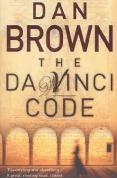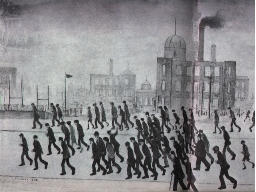
The Guardian ruined my film
The Guardian newspaper is solely to blame for this less than rapturous review of the Chronicles of Narnia film. Having last picked up The Lion, The Witch and The Wardrobe at the age of seven, all I was left with was a rather hazy memory of a wardrobe, a cloven-hoofed beast called Mr Something and a lot of ice - plus, of course, the Turkish Delight.
Which somewhat lost its tantalising mystery when I finally tried one from a box of Roses by accident and nearly threw up. So when the world of 'always winter, never Christmas' was reintroduced to my consciousness, I was well and truly open to persuasion.
If Polly Toynbee told me I was in for three hours of force-fed, sexist Christianity, my mind gave only a mild shrug before accepting it. Add to this growing infuriation at having seen Susan's clich�d "Impossible!" at least twenty times on trailers and don't-watch-pirate-DVDs adverts, and the film's chances were looking about asgood as those of the Turkish Delight.
I am absolutely convinced that, had it not been for the anti-Christian outrage expressed by half the country, I would have been able to get into that film. I would have shared in Lucy and Susan's horror at the gathering of stereotypically evil creatures tormenting Aslan, rather than hearing a cynical and brightly interested voice in one corner of my brain remark, "Oh look! Golgotha!" I would have experienced their pain as they sobbed over his body, rather than unsympathetically sneering, "Stop being so Magdalenic!" And when the magnificent lion stepped through the enlightened stone frame, alive again, I would certainly not have had to bite my lip to stop myself asking: "So now can we have some chocolate eggs?"
Don't get me wrong. I am neither fervently anti-Christian, nor naturally cynical, but the Guardian ruined that film for me. Even discounting Polly Toynbee's rant entitled 'Down with Aslan!', every review of the film either made some reference to its being Christian propaganda, or elicited dozens of angry letters proclaiming that it should never have been allowed. Looking at it objectively afterwards, I couldn't help acknowledging that some of the special effects had been pretty good - and of course I was utterly taken by the cute factor of the fantastic little actress who played Lucy.
And although I missed the thrill of suspense that immersing yourself in a good film can bring, I didn't miss the pain that comes with it. Thanks to the cynical attitude implanted in me by the newspaper, I was spared from the full horror of the faun Mr Tumnus's frozen grimace of agony and felt no despair when Peter failed to slay the White Witch. I guess cynicism has its moments.
So to the Guardian, Polly Toynbee and all its righteous readers, I owe thanks - but they owe me three completely wasted hours of my Christmas holiday.
I hear the next book was too racist to even be filmed; then again, I'm sure the sequel will have plenty in it to object to if you put your mind to it. I'll just have to hope Polly Toynbee never gets her hands on Shrek.
Author: Kirsty Upham
Bolton iJourno group














